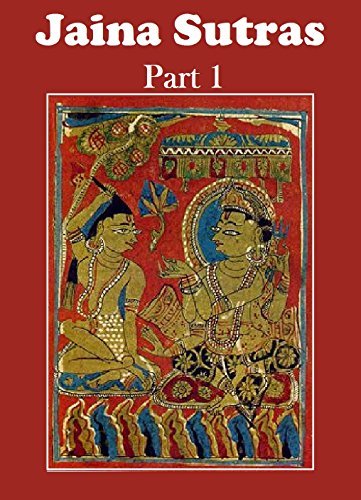Acaranga-sutra
by Hermann Jacobi | 1884 | 71,211 words | ISBN-10: 8120801237 | ISBN-13: 9788120801233
The English translation of the Acaranga Sutra, which represents the first the 12 Angas in Shevatambara Jainism. It is traditionally dated to the 5th-century BCE and consists of two parts containing lectures based on the teachings of Mahavira. Topics include: lifestyle of an ascetic: conduct, behavior, collecting alms, clothes, mode of walking and ...
Lecture 4, Lesson 3
‘Reflect and observe that whether you go to this world or to that beyond, in the whole world those who are discerning beings, who abstain from cruelty[1], relinquish karman. They are flesh-subduing, called duty-knowing, upright men, aware that pain results from actions.’ Thus say those who have right intuition. (1)
All the professors, conversant with pain, preach renunciation. Thus thoroughly knowing karman, observing the commandment, wise, unattached (to the world), recognising thy Self as one[2], subdue the body, chastise thyself, weaken thyself: ‘just as fire consumes old wood!’ Thus with a composed mind, unattached, ‘unhesitatingly avoid wrath!’ Considering the shortness of life ‘know pain, or what will come[3];’ one shall feel the several feelings; and perceive the world suffering under them. (2) Those who are free from sinful acts are called anidāna[4]. Hence a very wise man should not be inflamed (by wrath). Thus I say. (3)
Footnotes and references:
[1]:
Nikkhittadaṇḍā, literally, those who have laid down the rod.
[2]:
.I.e. as separate and different from the world.
[3]:
According to the commentators the present and future pains.
